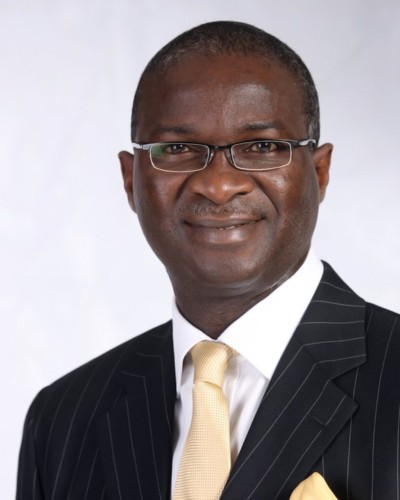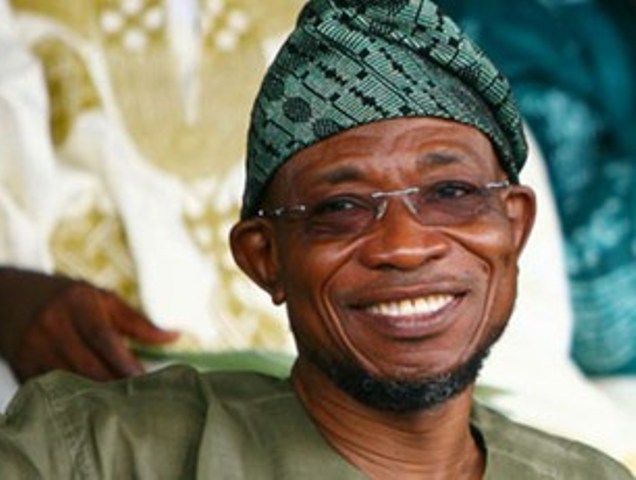Ribadu’s plan for the economy
The presidential candidate of the Action Congress of Nigeria (ACN), Nuhu Ribadu, has stated that he will focus on nine major policy themes that would enable the nation address and effectively manage the difficulties that its citizens are presently grappling with. Spelling out his vision in his manifestoes, he listed the policy themes as human capital development, the economy, infrastructure, governance, youth empowerment, agriculture, and food security. Others are defence and national security, Niger Delta, and foreign policy. Without doubt, these are issues that are close to the hearts of the people. The nation is on the porch of another general election, the fourth since the return of democracy. Many candidates have been proclaiming their manifestoes on how to make the nation’s economy better, on how they can ensure justice, secure lives and properties, encourage investors to bring in their much needed funds and expertise. Mr. Ribadu said that the Nigerian economy is performing below potential and is not creating enough jobs for its teeming youth. “Though the economy is growing at around 6 per cent per annum, it could grow at a much faster pace and more importantly, it could create more jobs if the right policies are pursued. The economy has to be managed with fiscal prudence so that we are not spending much more than we take in as revenues,” Mr. Ribadu had said.He said the fiscal deficit, which was kept at 3 per cent of GDP from 2003-2007, has now doubled to 6 per cent, implying a great deal of spending without much impact or results on the ground.”We shall budget within our means and keep overspending to a minimum. We shall rebuild our foreign exchange reserves back to a robust level of US$50 billion or more; and plan for a steady and attainable economic growth rate of 7-8 per cent per year for the next five years, and 8-10 per cent per year for the years following that. This growth must be job-creating growth focused on both the oil and non-oil sectors of the economy,” he added.Nigeria’s imports and payments in 2010 rose by 37 per cent to $41billion from $30 billion in 2009, and its exports also surged by $20 billion to $79.4 billion. Experts believe that the Nigerian external account should be robust enough to support the naira at an artificially determined rate of exchange. However, there has been significant depletion in the external reserves position by about 38 per cent since 2008.”The depletion of the external reserves, in spite of higher oil prices and strong production figures, has become a source of national and international concern,” Bismarck Rewane, managing director, Financial Derivatives Company, a finance research and analysis firm, said. He added that the depletion of reserves, which he called “haemorrhage of reserves”, would put the economy on an even keel, tough for the next government.
Battling corruption
Even if the economy is helped to a point where the nation would be a bit confident of its progress, the fear of most citizens is that corruption, the venom which has eaten deep into people in positions of power, would bring the economy down.This same vice has made it difficult for the country and even investors, local and foreign, to invest in strategic areas of the economy. In spite of the vast oil revenue the nation has generated over the past five decades, it still has one of the lowest per capita incomes in the world.Mr. Ribadu says his vision is not only a bold new system that punishes corruption, but one “that also taps into the energies and innovation of our people to generate shared prosperity driven by honest labour, an abiding sense of commitment, and a desire to fix our broken society and restore our shared national values of honesty, integrity, discipline, hard work, and respect.”According to him, corruption only thrives when a government and its key functionaries are not accountable to the voting public. “We will empower our citizens to enable them fully participate in governance and also serve as a countervailing power able to check the excesses of the government,” Mr. Ribadu had also said.
Oil and gas sector and the Niger Delta policy
Investigation reveals that gas flaring, spillages and other environmental pollutions, uprisings and unrest, poverty, violence, and insecurity are some of the many factors that still pose challenges to the nation’s oil production capacity.Mr. Ribadu said to address these challenges, he will review the amnesty programme began by the late President Umaru Yar’Adua and encourage greater involvement of the private sector in order to address the fundamental needs of the demobilised militants which are jobs, a sense of self-worth, and a new social and political order in the Niger Delta in which they can participate as active citizens.”We will endeavour to expand the job pool in the region by working with the state governments to revive moribund industrial and agricultural projects, sourcing expertise from the private sector,” he said.Experts and industry watchers have canvassed for the petroleum local content bill and the Petroleum Industry Bill, and have said that their advantages need to be fully tapped.The commercialisation of the NNPC, which is a fallout of the PIB, could be a positive development towards the progress of the nation’s oil and gas sector.”In general, it is our view that the commercialisation of the NNPC can be a positive development. We have seen positive examples in other countries (that is Statoli, Petrobras, etc). Therefore, if done properly, it can lead towards providing a premier/leading Nigerian company in the oil and gas industry that can be on the forefront of new technologies,” Dragan Trajkov, oil and gas expert, Renaissance Capital, said.Given its potential size, it can potentially look for opportunities outside Nigeria as well and being a commercial entity, it will allow management to concentrate on profitability, and on a longer term, create value for all shareholders. “With potentially selling portion of it to the public (assuming it will be listed in Nigeria), it will enable Nigerian investors to participate in the oil and gas sector. Right now, other than Oando, I don’t believe there is really a publicly listed company in Nigeria that investors can invest in and participate in the upstream exploration and production,” Mr. Trajkov said.In terms of power, Mr. Ribadu said he will move to diversify the energy mix by introducing coal powered plants which will employ clean coal technologies.
Stability and investment
Mr. Ribadu pointed out that the exchange rate is a strategic tool for altering national behaviour and consumption patterns, and not only a tactical tool for satisfying the addictive propensity of Nigerians to import.”For example, ever since the Ivorian crisis, the world price of cocoa has surged by 16 per cent. The Nigerian farmers have not been able to respond to this opportunity by increasing supply. The relatively overvalued exchange rate over time had made Nigerian cocoa more expensive relative to Ghanaian cocoa where the cedi has been subject to a more flexible exchange rate mechanism. “Today, Nigeria is a triple beneficiary of a surge in oil prices, increase in demand for LNG, and an increase in oil production,” Mr. Ribadu said.Mr. Rewane said there is the temptation to ignore the structural problems of the economy and continue the addiction of an import consumption binge, with a subsidized currency. “However, this is the time to step back and take a more measured and strategic approach to exchange rate management. It is time to allow greater flexibility and reduce the frequency of intervention,” he said.
source : 234next






